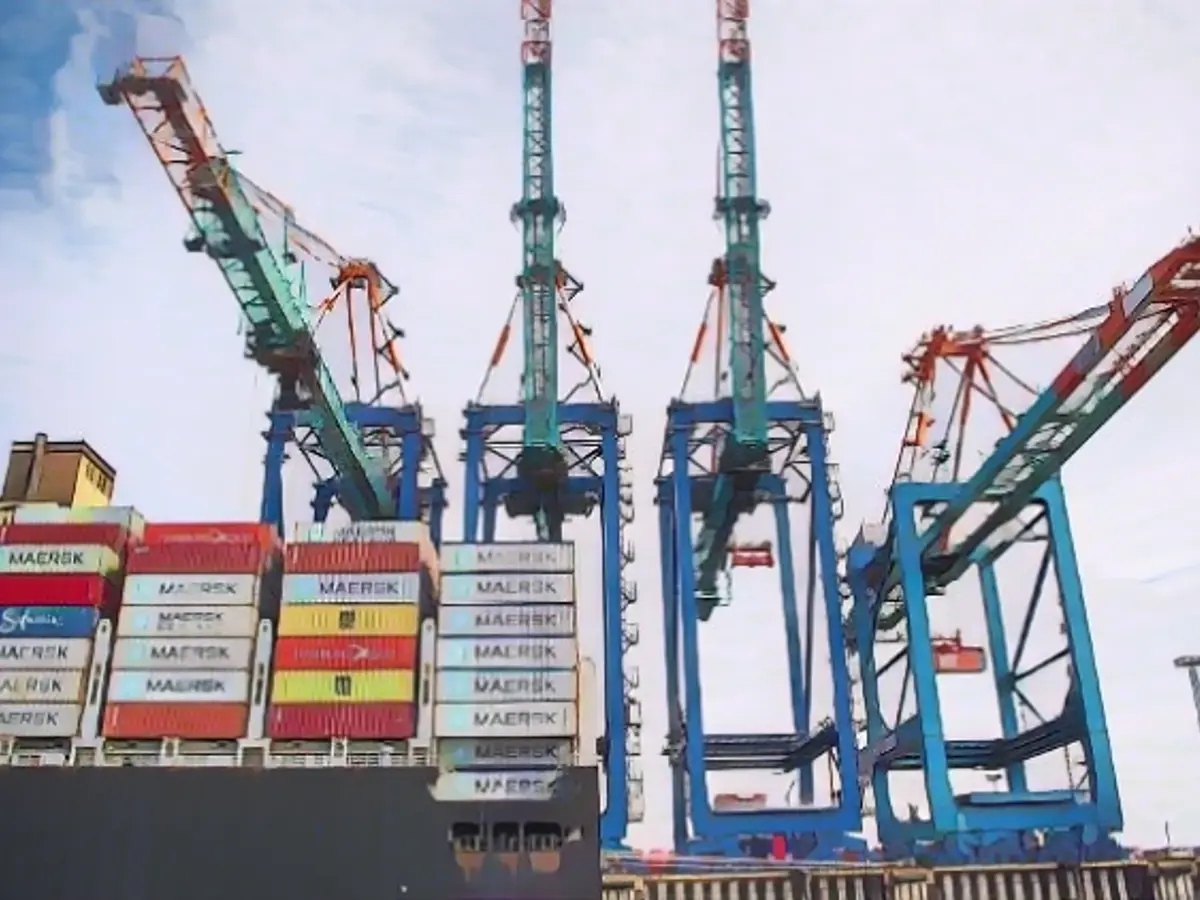German Industry Experiences Unanticipated Decline in Orders
Germany's manufacturing sector faced an unexpected fall in orders in October, with a 3.7% decrease compared to September. This drop, as reported by the Federal Statistical Office, contrasted economists' predictions of a 0.2% increase, courtesy of Reuters' survey . The primary cause of this negative turn was the absence of substantial foreign orders.
After observing growth of 1.9% in August and 0.7% in September, the three-month period of October exhibited a 4.6% decline in incoming orders. Economic experts suggested that a sustained industrial recovery won't materialize until next year . Current economic dynamics, including fluctuating interest rates, escalating energy costs, and a sluggish global economy, are predicted to hinder demand .
Commerzbank's chief economist, Jörg Krämer, further warned of an imminent German economic contraction during the winter half-year. He also explained that businesses may be impacted by the country's budget crisis, which presents a possibility of contraction .
Domestic orders witnessed a contrasting 2.4% growth in October, although external demands plummeted by 7.6%. Mechanical engineering, a vital sector, was most affected and recorded a 13.5% decrease in orders. This followed a positive 9.8% increase in September .
Several industries, including metal product manufacturers, metal factories, electrical equipment manufacturers, and the automotive sector, observed a decline in orders. On the flip side, vehicle construction, incorporating aircraft, ships, and trains, exhibited a 20.2% surge in new business, driven by substantial orders. Consequently, the manufacturing sector's revenue shrank by 0.5% in October, after encountering a 1.4% decrease in September .
Detailed Insights
The recent slump in German industry orders stems from various factors, ranging from sector-specific challenges to broader global economic shifts. Here's a breakdown of the key influences:
Sector-specific Challenges
- Electrical and Digital Industry: The electrical and digital industry reported a drop in orders of 9.6% in 2024, with December experiencing the most significant decrease of 19.5%. Lack of orders and excess capacity are affecting 54% of companies within this sector .
- Robotics and Automation Industry: This sector has experienced a 9% decline in sales for 2025, following a 6% fall in 2024. The automotive industry's reliance on robotics and automation creates structural weaknesses, necessitating innovation, cost reduction, and regulatory reforms to ensure competitiveness .
- Machine Tool Industry: The machine tool industry documented a 4% fall in production to €14.8 billion in 2024, with exports dropping by 5%. Despite the US market's growth, overtaking China as the leading sales market, economic conditions remain challenging for the sector .
Global Economic Shifts
- Manufacturing Sector Crisis: Germany's economy has been grappling with stagnation for five years, with no real GDP growth since the Covid-19 pandemic. Total exports have declined, particularly to China, while the US market has shown improvement .
- Decline in Exports to China: Factors contributing to this decline include China's competitive long-term industrial policy, favoring subsidies and protectionist measures. Consequently, Chinese products become more competitive than German ones in third-party markets .
- Internal Imbalances in China: China's mounting production surpluses are being exported, further impairing German market shares. The property sector crisis affects structural low household consumption levels, which keeps China's consumer market sluggish .
- Competitiveness Gap: The German industry is grappling with an increasing competitiveness gap due to rising energy costs and a growing technological and productivity gap compared to the US and China .
Germany's manufacturing sector is grappling with a prolonged slump in orders primarily due to falling foreign demands. Sector-specific challenges, such as those faced by the electrical and digital, robotics and automation, and machine tool industries, exacerbate the problem. Additionally, global economic shifts are impacting the overall industry and the economy at large. Addressing these challenges effectively is critical for overcoming the industry's current difficulties and enabling Germany's economic recovery.





